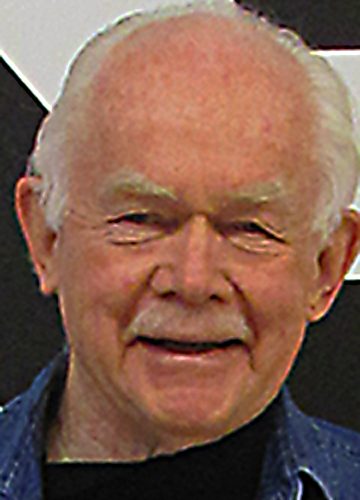How Dare You!!!

Greta Thunberg’s “How Dare You!” presentation to the UN captures in her passionate voice how all of us must embrace the reality of our climate crisis.
“Artificial environments deprive us of a direct knowledge of nature. Our knowledge is limited to the created environment…”
This quote is from Jerry Mander’s 1977 book Four Arguments for the Elimination of Television. I thought Mander had chosen an audacious topic to take on at the time television was promising all kinds of benefits for those who watched TV, but I changed my mind soon after beginning to read the book. It was the first book to focus me on everything leading up to our current climate crisis.
This quotation, written 42 years ago about the capacity of television to shape our thinking, well defines at least one aspect of today’s confusion about climate change. How many millions of people do you think live today in created environments that isolate them – and us – from nature? The most egregious example of artificial environments can be found in Qatar. To survive the summer heat, Qatar not only air conditions its soccer stadiums, but also the outdoors — markets, sidewalks, outdoor malls so people can window shop with a cool breeze. “If you turn off air conditioners, it will be unbearable. You cannot function effectively,” says Yousef al-Horr, founder of the Gulf Organization for Research and Development.
In the U.S., 87 percent of all households had some kind of air-conditioning in 2015, up from 55.6 percent in 1978. During that period, the percentage of households in America with central air almost tripled, to 64.4 percent from 22.6 percent, but the Northeast (New England and the Middle Atlantic) has been a pronounced laggard on the central air front, mainly because it has added much less new housing relative to existing housing stock than other parts of the country. Retrofitting older dwellings with central air can be expensive and, in the case of many apartments, more or less impossible, so people make do with window units. Research is showing that the extensive use of daytime air-conditioning in cities – already hot spots because of the concentrated use of energy and traffic – is increasing nighttime temperatures.
Mander goes on with this: “In free enterprise, value is assigned to producible goods and services. Thus, things are considered to have no value if they cannot be made productive, i.e. if they cannot generate revenue. Undeveloped land is non-productive; uninhabited desert is non-productive; uncut forests are non-productive. Therefore, the economic system itself has a vested interest in turning the natural into the artificial; anything less outrages the capitalist. Open space, untamed animals, and untapped minerals are searched out and transformed, if only to the temporary benefit of the transformer and the long-term liability of society. The profit motive tends to be short-term and short-sighted. Scarcity is valued because it drives up profits. It is not to be overcome; it is to be taken advantage of: it’s all about private enterprise, and it’s all about now.”
Fourteen years later in 1991, Mander’s second book was published: In the Absence of the Sacred: The Failure of Technology & the Survival of the Indian Nations. Mander sees a close connection between the advances of modern technological society and the plight of indigenous peoples around the world. Since the dawn of the technological era, he says, the only consistent opposition has come from land-based native peoples. Rooted in an alternative view of the planet, Indians, islanders, and peoples of the North have not only warned of the dangers of technology, they have also been its most direct victims.
According to Mander, “we are in the midst of an epic worldwide struggle between the forces of Western economic development and the remaining native peoples of the planet, whose presence obstructs their progress. The ultimate outcome of this conflict is not hard to predict given that the technological juggernaut inevitably chews up the societies that warn that this path will not work. Worst of all these are the very people who are best equipped to help us out of our fix, if only we’d let them be and listen to what they say.”
In his first book, Mander decries the fact that, “the next generation will have to pick up the pieces of what we leave behind; it’s their problem.”
Perhaps the most prominent person in “the next generation” is Greta Thunberg. Thunberg first became known for her activism in August 2018 when, at age 15, she began spending her school days outside the Swedish Parliament to call for stronger action on global warming by holding up a sign saying (in Swedish) “School strike for the climate.” Soon other students engaged in similar protests in their own communities. Together they organized a school climate strike movement under the name “Fridays for Future.” After Thunberg addressed the 2018 United Nations Climate Change Conference, student strikes took place every week somewhere in the world. In 2019, there were at least two coordinated multi-city protests involving more than one million students each.
Thunberg has been dissed by Presidents Trump and Putin — which should tell you something about the power of her messages. Diagnosed with autism, Thunberg had fallen into a deep depression by age 11. There were a number of factors; “some,” writes Naomi Klein in her new, must-read book, On Fire; The (Burning) Case for a Green New Deal, related to “being different in a school system that expects all kids to be pretty much the same.”
“Many people on the autism spectrum are also less prone to imitating the social behaviors of the people around them – they often don’t even notice them – and instead tend to forge their own unique path,” Klein says. “In a way, she is asking those of us whose mental wiring is more typical – less prone to extraordinary focus and more capable of living with moral contradictions – to be more like her.”
To which Thunberg says, “For those of us on the spectrum, almost everything is black and white. We aren’t very good at lying and we usually don’t enjoy participating in this social game that the rest of you seem so fond of.”
I invite my readers — urge them — to listen to Thunberg’s “How Dare You!” presentation to the UN Climate Change Conference. She captures in her passionate voice how all of us must embrace the reality of our climate crisis. Her message is visually enhanced in this video by Mei Li, an extraordinary animator and illustrator who is one of the highly talented people who comprise the New York-based AD Lubow LLC advertising agency. They are the creative force behind a distinguished roster of social change and public good clients. Please go to adlubow.com/climate-for-change and hear for yourself “A Voice in the Wilderness: Greta Thunberg.” You will find that what so many of us are feeling, but unable to express, is given voice by Thunberg.








The plutocrats who rule the world are the most short-sighted people on Earth. They can’t see past the next quarterly report and dividend declaration. The inertia of fossil-fuel dependency, hugely exacerbated by out-of-control overpopulation and consequent hugely excessive demand cannot be overcome — in time — by all the Greta Thunbergs the world can dredge up in defense of Nature and a better human future. Corporations function essentially as mindless profit-machines. War-profiteering, oil-profiteering — whatever, anything and everything in the name of “wealth”. But the day is coming when the billionaires’ gold bars won’t buy them a loaf of bread.